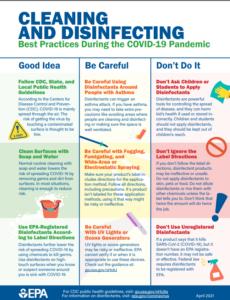Pandemic Prevention: Essential Tips for a Healthy Future

Navigating Wellness: Essential Pandemic Prevention Tips
The ongoing global pandemic underscores the importance of proactive measures to prevent the spread of infectious diseases. In this article, we explore essential tips for pandemic prevention, offering practical insights to safeguard individual and community health.
Embracing Proper Hygiene Practices
A cornerstone of pandemic prevention is adopting proper hygiene practices. Regular handwashing with soap and water, using hand sanitizer when soap is unavailable, and avoiding touching the face help minimize the risk of infection. Cultivating these habits contributes to overall community well-being.
Wearing Masks as a Protective Measure
The widespread use of masks is a crucial component of pandemic prevention. Masks act as a barrier, preventing the transmission of respiratory droplets. Proper mask-wearing, covering the nose and mouth, is an effective practice in public spaces to protect oneself and others from potential infection.
Maintaining Social Distancing Guidelines
Social distancing remains a key strategy in preventing the spread of infectious diseases. Adhering to recommended distance guidelines helps minimize close contact and reduce the risk of transmission. Whether in public spaces, workplaces, or social gatherings, maintaining physical distance is a proactive measure.
Prioritizing Vaccination for Community Immunity
Vaccination is a powerful tool in pandemic prevention. Prioritizing vaccination not only protects individuals from severe illness but also contributes to community immunity. Encouraging widespread vaccination helps build a collective defense against infectious diseases, mitigating their impact.
Staying Informed and Following Health Guidelines
Being well-informed about the latest health guidelines and updates is crucial for effective pandemic prevention. Following recommendations from reputable health organizations and staying updated on local guidelines ensures individuals can make informed decisions to protect themselves and others.
Ensuring Adequate Ventilation Indoors
Proper ventilation is essential in minimizing the risk of airborne transmission. Ensuring adequate ventilation in indoor spaces, especially in shared environments, helps disperse respiratory droplets and reduce the concentration of infectious particles. Good ventilation is a preventive measure in various settings.
Practicing Respiratory Etiquette
Practicing respiratory etiquette, such as covering coughs and sneezes with tissues or the elbow, prevents the spread of respiratory droplets. Disposing of tissues properly and maintaining good respiratory hygiene contributes to a cleaner and safer environment for everyone.
Maintaining a Healthy Lifestyle
A robust immune system is a valuable asset in pandemic prevention. Maintaining a healthy lifestyle through regular exercise, a balanced diet, and adequate sleep supports overall well-being. A healthy body is better equipped to resist infections and contribute to community resilience.
Avoiding Nonessential Travel
Limiting nonessential travel is a preventive measure to curb the spread of infectious diseases. Travel increases the potential for exposure to different environments and communities. Restricting travel, especially during times of heightened transmission, is a responsible action in pandemic prevention.
Promoting Community Engagement and Support
Community engagement is integral to effective pandemic prevention. Encouraging a sense of community responsibility, supporting vulnerable populations, and fostering open communication contribute to a collective effort in creating a safer and healthier environment for all.
Explore More about Pandemic Prevention Tips
Stay informed and proactive in pandemic prevention by exploring additional tips at Pandemic Prevention Tips. By embracing these practical measures, individuals contribute to a healthier future for themselves and their communities.





